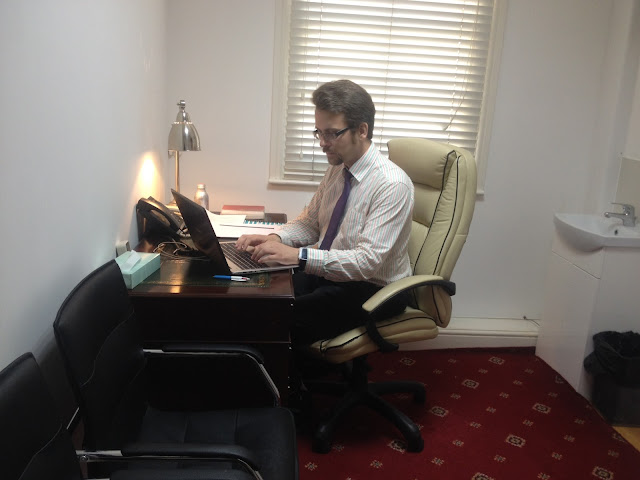An interview with hypnotherapist Jakub Tencl, CH, MSH(Acc), CNHC Reg
Today our guest is Jakub Tencl a certified hypnotherapist living in London, originally from Czech republic. His practice is at Westend Medical Practice in London and at Alala, a charity for orphaned children in Brighton. Jakub was studying in Los Angeles Advanced Hypnotherapy and he is the chairman of British Association of Therapists. We have conducted an interview with him.
What serious problems can you help solve with hypnotherapy?
You know, when you say ‘serious’, it implies that there are serious issues in mental health, but if you want to feel better, one of the first things that you need to do is change the perception of your current state, therefore using the word ‘serious’ cannot trigger a change. Let’s call it self-identification. However, from the psychological perspective, of course, there are serious mental disorders. So those can be treated only on a doctor’s referral.
But to be precise, hypnotherapy can treat anxiety, depression, pain of psychosomatic origin. Maybe you will be surprised, but hypnotherapy can treat eating disorders and addictions of all kinds. But you need to know that hypnotherapy is a complementary method. This means that in most cases the cooperation of general practitioners is needed.
Which is the most underrated credential in advanced hypnotherapy?
First of all awareness about what hypnosis and hypnotherapy is. Sometimes filmmakers show in movies what it looks like when somebody is hypnotized. It gives a feeling that hypnosis is almighty because you are not conscious. Thus it may appear that the mind can be influenced from outside. Maybe now you can see how illogical it is. Consciousness can’t act without subconsciousness and vice versa. What if I tell you that hypnosis is a natural state of mind and every individual experiences hypnotic state on a daily basis, will you be surprised?
Another thing is that hypnosis is taken as hypnotherapy. Hypnotherapy is a form of complementary therapy that utilizes the power of positive suggestion to bring about subconscious change to our thoughts, feelings, and behavior. So hypnosis is a tool for hypnotherapy. Furthermore, when someone says clinical hypnotherapy, the question what can be clinical about hypnotherapy can arise. This is because hypnosis can treat medical and psychological problems and is also used by the clinician.
What led you to composition and publishing of hypnosis and relaxation CDs?
Here I’d like to talk about the composition of my relaxation CD. When I wrote the book The Mystery of Life, I had the idea that not everything can be expressed in words, therefore I decided to express a little bit more in music.
The hypnosis CDs were born differently. My clients have a chance to listen to the hypnosis at a comfort of their home between each session for reinforcement of the effect. And because records have been successful in terms of progress in the therapeutic process, therefore I decided to publish all successful records.
What percentage of people are mostly receptive to hypnosis CDs? How do you help people who are not suited for this method?
As I explained, the success rate was taken from practice, but it is about 99% in combination with personal experience from the session. This also carries the presumption that a determined goal is not forced from outside. For instance when somebody wants to stop smoking, but is not convinced, but paradoxically says that he wants to quit. In most cases this will be coming from outside.
If you listen to the CD recording without the option to have a session in person, you have a more than 50% chance to experience an improvement. When you feel that you don’t experience any change after many repeated listenings, please contact me, I will tell you what can be done furthermore.
Which are the books that you have written?
Firstly I’d like to talk about a book that has been published in two languages. I consider this book as one of my main works. It’s The Mystery of Life with a relaxation CD with the same title. This is an autobiographical view how life can be enriched with curiosity and how to find a spiritual path, something that fulfills us.
My other book, and I would say that it’s my legacy for future, is a method of self-acceptance called Lovefulness. This method is not finalized. Many seminars and speeches have been given about this method and it’s increasingly gaining recognition.
What is your background and experience level in this field? What would you like to achieve in the near future?
I started in 2010 with one goal - to help people. Since then it has been a long journey, I have seen over a thousand clients up to now and I think that clients’ reviews say it all. My education allows me to treat clinically medical and psychological problems.
I’d like to continue writing books and gain more education; as every hypnotherapist, I’m committed to continuing studies to ensure high standards of the services. I’d also like to build a hypnotherapy association and my own clinic. And I’d like to work in more countries whether it be in person or remotely.



